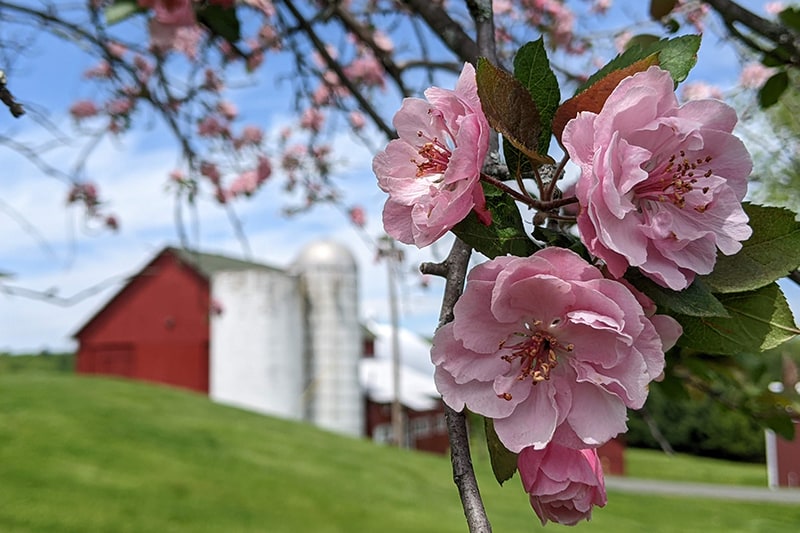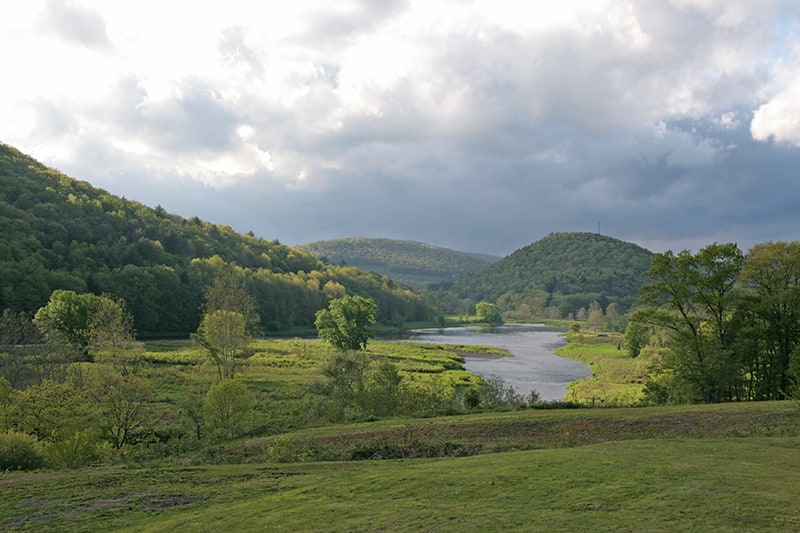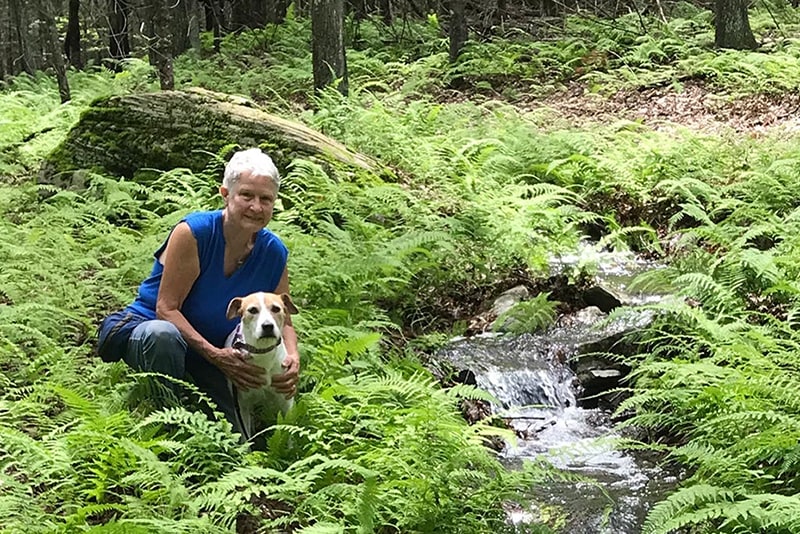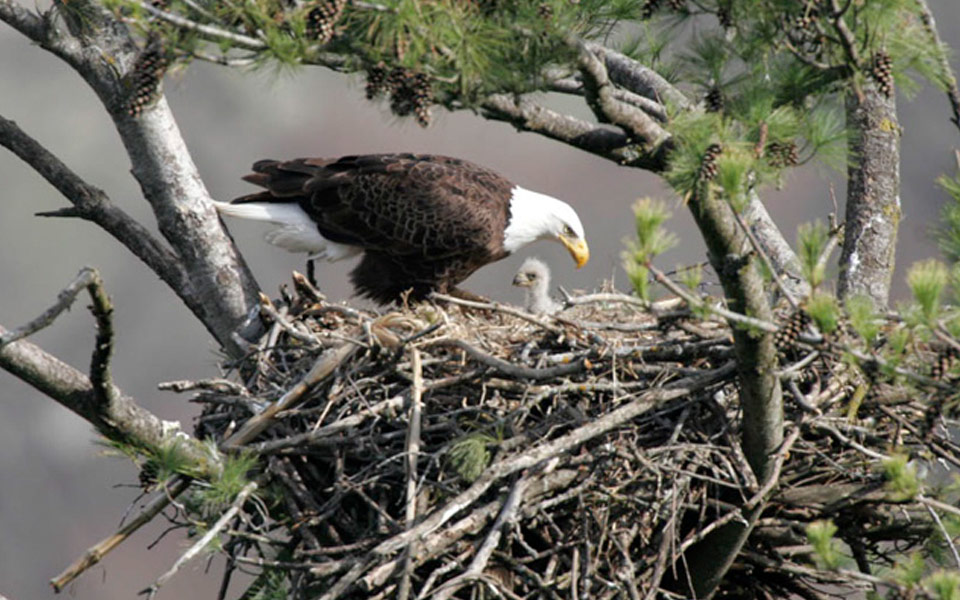Twin Lakes: A New, Unique Partnership
Delaware Highlands Conservancy accepted an extraordinary gift from Barbara & Richard Brown: 154 acres of land near Twin Lakes, Pike County, PA. The Conservancy drafted a very restrictive conservation easement for the land and transferred it to the Twin Lakes Conservancy for a price reflecting the new restrictions. The easement ensures that the land will remain forever wild, and Twin Lakes Conservancy owns the land, adding it to their other buffer land holdings near the lake.
SOME HISTORY:
To better understand the full meaning of this gift, think back 100 years. In 1901, Jacob Weber and his five sons purchased 450 acres of land surrounding the Twin Lakes. One of those sons, Frank Pinchot Weber, traveled each summer with his family by train from Jersey City with canned and dried foods, flour, sugar, and salt enough to last the season. When the train arrived at Parkers Glen they would load the family, luggage and sacks of food onto a mule drawn wagon and head up to Twin Lakes. The Webers were among the first families on the lake.
Later generations of Webers also loved this place. “For many years after my marriage to Richard,” Barbara Brown writes, “and with four children of our own, our time at the lake was narrowed down to two weeks in the summer plus Memorial Day and Labor Day weekends. Now our grandchildren are the sixth generation to enjoy our special location on Twin Lakes.”
THE TRANSACTION:
Last week Frank Pinchot Weber’s granddaughter, Barbara Brown, donated the last untouched portion of Jacob Weber’s original holdings to Delaware Highlands Conservancy. We will preserve it in perpetuity with a conservation easement, a legal contract that spells out how a tract of land can and cannot be used. In this case, the conservation easement prohibits any residential or commercial uses of the land. This will insure that the “Frank Pinchot Weber Tract,” as it is now called, will remain forever wild.
Thus, the forest canopy that covers most of site and acts as an important breeding habitat for neotropical migratory birds will remain intact. Wetlands will protect water quality in Raymondskill Creek and the Delaware River (its ultimate destination) by preventing erosion and sediment from degrading its headwaters. The tangle of swamp and forest will continue as exceptional wildlife habitat for a remarkable number of species.
HOW IT WAS ACCOMPLISHED:
The transfer from the Browns to Delaware Highlands Conservancy to Twin Lakes Conservancy was the result of a complicated plan and eight months of negotiation.
1) The Browns desired to protect the land, and so they gave their land to Delaware Highlands Conservancy. Thus they ensured its protection and gained a tax deduction.
2) Once Delaware Highlands Conservancy accepted the gift it placed a restrictive conservation easement on the land to conserve its natural values. As an accredited land trust DHC is skilled in the negotiation and monitoring of conservation easements.
3) So, we next turned to the Twin Lakes Conservancy. Although they are not a charitable land trust, Twin Lakes’ mission is to protect the lake, and they have already acquired several properties that buffer the Lakes’ waters. It is logical that they own this land. We sold the 154 acres to the Twin Lakes Conservancy for the reduced appraisal value that reflected the stringent land-use restrictions, and we placed the income received into our Easement Monitoring Endowment Fund.
EVERYBODY WINS:
The Delaware Highlands Conservancy holds the conservation easement, and Twin Lakes Conservancy owns the land. The goals of both conservancies are the same: the conservation of these magnificent lands and waters. The Browns are assured the future preservation of Jacob Weber’s woods. The people of Pike County are guaranteed a scenic view and watershed protection, and the wildlife habitat remains secure.









